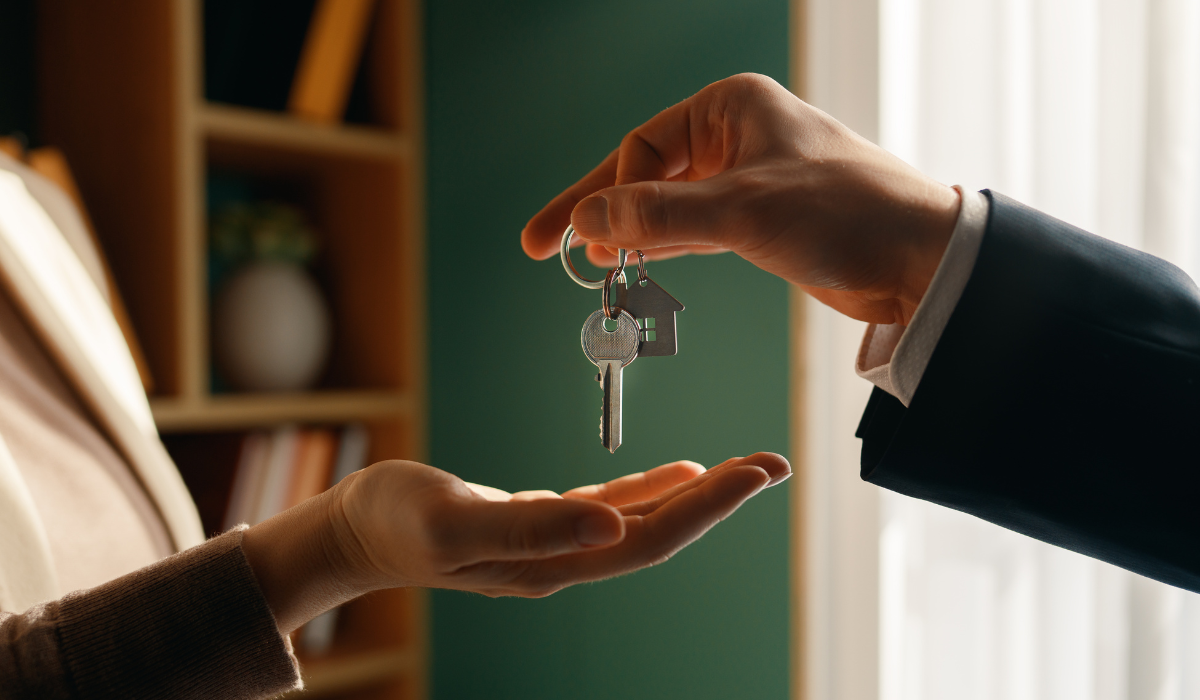How Do Estate Auctions Work and When Are They Better Than Estate Sales?
A Step-by-Step Guide to Estate Auctions and When They Offer More Value Than Traditional Estate Sales

When families need to liquidate a household—whether due to downsizing, relocation, or settling a loved one’s estate—they often choose between an estate sale and an estate auction.
Both methods aim to sell personal property efficiently, but they differ in structure, strategy, and outcomes.
Understanding how estate auctions work, the complete estate auction process, and when they outperform traditional sales can help families make confident decisions during what is often an emotional and overwhelming time.
Understanding the Difference: Estate Sale vs Auction
Before diving into the mechanics of the estate auction process, it's essential to clarify the difference between an estate sale vs auction.
Estate Sale
An estate sale is a multi-day event held inside the home, where items are individually priced, displayed, and sold on a first-come, first-served basis.
Shoppers browse like they would in a retail environment and pay the marked price (often negotiable).
Estate Auction
An estate auction is a competitive bidding event—either live, online, or hybrid—where items are sold to the highest bidder.
Instead of fixed prices, buyer demand determines the final value.
Both options have merits. Estate sales are familiar and relaxed; auctions are fast and competitive.
The right choice depends on market conditions, the type of items being sold, and how quickly families need liquidation.
How Estate Auctions Work: A Step-by-Step Guide
To understand why an auction may be the stronger choice, it’s helpful to look at how estate auctions work from start to finish.
While every auction company has its own style, the steps below represent a typical workflow.
1. Initial Consultation and Inventory Assessment
The auction team begins with an on-site evaluation of the estate. They assess:
- Category and condition of belongings
- Potential resale value
- Market demand
- Volume of items available
- Whether a live, online, or hybrid auction is best
This consultation is crucial. Experienced professionals can identify hidden value, collectibles, antiques, and specialty items that may thrive in a competitive bidding environment.
2. Contract and Terms Agreement
Once a family decides to proceed, they sign an agreement outlining:
- Commission structure
- Timeline
- Marketing approach
- Auction format
- Cleanup and settlement details
This transparency ensures everyone understands the estate auction process from beginning to end.
3. Sorting, Cataloging, and Photography
Next, the auction company prepares the items for sale. This phase includes:
- Organizing the entire estate
- Cataloging each item with descriptions
- Professional-grade photography
- Grouping lower-value items into "lots" to increase competitiveness
Accurate cataloging is essential, especially for online and hybrid auctions where buyers rely heavily on detailed listings.
4. Marketing and Buyer Outreach
One of the biggest benefits of an auction is its marketing power.
Auction companies promote listings through:
- Email lists of recurring bidders
- Social media advertising
- Online auction platforms
- Local and regional marketing channels
- Specialty groups for antiques, art, jewelry, vehicles, or collectibles
The goal is to attract the highest number of motivated bidders, which drives stronger final prices.
5. Auction Day (Live, Online, or Hybrid)
Depending on the chosen format, the auction may take place:
Live Auction: A professional auctioneer conducts the event in fast-paced bidding rounds until the highest bidder wins.
Online Auction: Buyers bid through an online platform over days or weeks. This option attracts out-of-state buyers and often generates more competitive bidding.
Hybrid Auction: Combines live and online bidding for maximum reach.
All items sell the same day the auction closes, creating a clear endpoint—something estate sales cannot always guarantee.
6. Payment and Settlement
Winning bidders pay immediately. Accepted payment types usually include:
- Cash
- Credit cards
- Certified funds
The auction company handles the financial transactions, processes receipts, and ensures proper pickup coordination.
7. Post-Auction Cleanup and Final Report
After all items are picked up, the auction team often:
- Removes leftover items
- Provides donation or disposal services
- Delivers a full accounting of sales
- Sends payment to the family within the agreed-upon period
This turnkey approach is one reason many families choose auctions when time and simplicity matter.
When Are Estate Auctions Better Than Estate Sales?
Estate auctions are not only efficient—they often generate higher returns and reduce stress.
Below are the most common situations where auctions outperform sales.
When You Want Everything Sold Quickly
Auction events happen on a specific date and everything sells the same day.
Estate sales often last multiple days and still may leave unsold items behind.
Best For:
- Fast liquidations
- Time-sensitive relocations
- Families finalizing probate or legal deadlines
When Items Have Strong Collectible or Market Value
Because auctions create competitive bidding, collector items often sell for more than they would at a fixed-price estate sale.
This is especially true for:
- Antiques
- Coins and currency
- Jewelry
- Tools and equipment
- Art
- Vehicles
- Firearms
- Vintage furniture
The open bidding atmosphere helps ensure items sell at fair market value—or above.
When the Estate Includes Specialty or High-Value Items
If a home contains rare or unique items, an auction gives the seller access to specialized buyers who may not attend a regular estate sale.
Examples of items that excel at auction:
- Rare collectibles
- High-end décor
- Industrial tools
- Professional equipment
- Farm machinery
Auction houses with niche buyer lists can dramatically increase exposure.
When You Want Transparency and Fair Market Pricing
In an auction, the market—not the seller—determines value.
There’s no second-guessing whether something was underpriced.
Why this matters:
- Buyers set the price
- Every bidder has an equal chance
- There is a full record of the sale
For families who want fairness and transparency, auctions offer peace of mind.
When the Home Is Not Suitable for Walk-Through Shoppers
Estate sales require strangers to walk through the home for hours or days.
Auctions—especially online ones—greatly reduce traffic or eliminate it altogether.
Ideal for:
- Homes needing repairs
- Estates with privacy concerns
- Rural properties with limited parking
When You Want Exposure to a Larger Buyer Pool
Estate sales rely mostly on local foot traffic.
Auctions reach regional, national, and sometimes global bidders.
More bidders = better competition = higher selling prices.
When You Need Professional Handling from Start to Finish
Estate auctions are turnkey. Families receive:
- Full inventory handling
- Marketing
- Item movement
- Payment processing
- Cleanup
- Final settlement
This reduces family stress and prevents mistakes that can occur during a DIY estate sale.
When Estate Sales May Be the Better Option
While auctions offer many advantages, estate sales do have their place.
Best Situations for Estate Sales:
- When the estate contains mostly low-value household items
- When you want to offer negotiable pricing
- When you prefer a browsing experience for customers
- When the community expects traditional sales
Small or low-value estates often perform similarly in either format, so a sale may be simpler.
Final Thoughts: Choosing the Right Method
Understanding how estate auctions work empowers families to make informed decisions.
Auctions are fast, professional, competitive, and often yield higher returns.
When you need quick liquidation, transparency, and access to a broad buyer base, auctions are usually the better choice.
Estate sales, while familiar and comfortable, work best for everyday items or small households without high-value belongings.
Ultimately, whether choosing an estate sale vs auction, families should consult reputable professionals who can assess the estate and recommend the most efficient and profitable solution.
FAQs
What is the main difference between an estate sale vs auction?
An estate sale is a multi-day event where items are priced individually and sold to shoppers on a first-come, first-served basis. An auction, on the other hand, uses competitive bidding to sell items to the highest bidder. The bidding format of an auction often generates higher prices, especially for valuable or unique belongings.
How does the estate auction process work?
The estate auction process typically includes evaluation, cataloging, marketing, and a designated auction day where all items are sold through live, online, or hybrid bidding. After the auction closes, the company handles payments, pickup coordination, and provides a final sales report to the family.
Why do families choose an estate auction instead of an estate sale?
Families often choose auctions for speed, transparency, and strong selling prices. Auctions work especially well for valuable, rare, or collectible items. They also attract a wider buyer pool since online auctions can bring in bidders from across the country or even internationally.
How estate auctions work for selling high-value items?
High-value items perform extremely well at auctions because competitive bidding naturally pushes prices upward. Collectibles, antiques, jewelry, art, equipment, and vehicles often sell for more at auction than they would at a traditional estate sale with fixed pricing.
Are online estate auctions better than live auctions?
Both have advantages. Online auctions reach a larger audience, allow longer bidding periods, and eliminate the need for large crowds in the home. Live auctions create urgency and excitement through real-time bidding. Many auction companies now offer hybrid formats to maximize results.
Do estate auctions guarantee everything will sell?
Yes. One of the biggest benefits of an auction is that everything sells the same day the auction closes. Estate sales may leave unsold items, but auctions give every item a chance to be sold through competitive bidding.
Are estate sales better for low-value households?
In some cases, yes. Traditional sales are often better for everyday household goods, clothing, or lower-value items. Auctions shine when an estate contains valuable, unusual, or collectible items that benefit from competitive bidding.
How long does the estate auction process take from start to finish?
Most auctions take anywhere from one to three weeks, depending on cataloging needs, the number of items, and marketing duration. Online auctions require a slightly longer bidding window, but the overall process is still faster than most estate sales.











